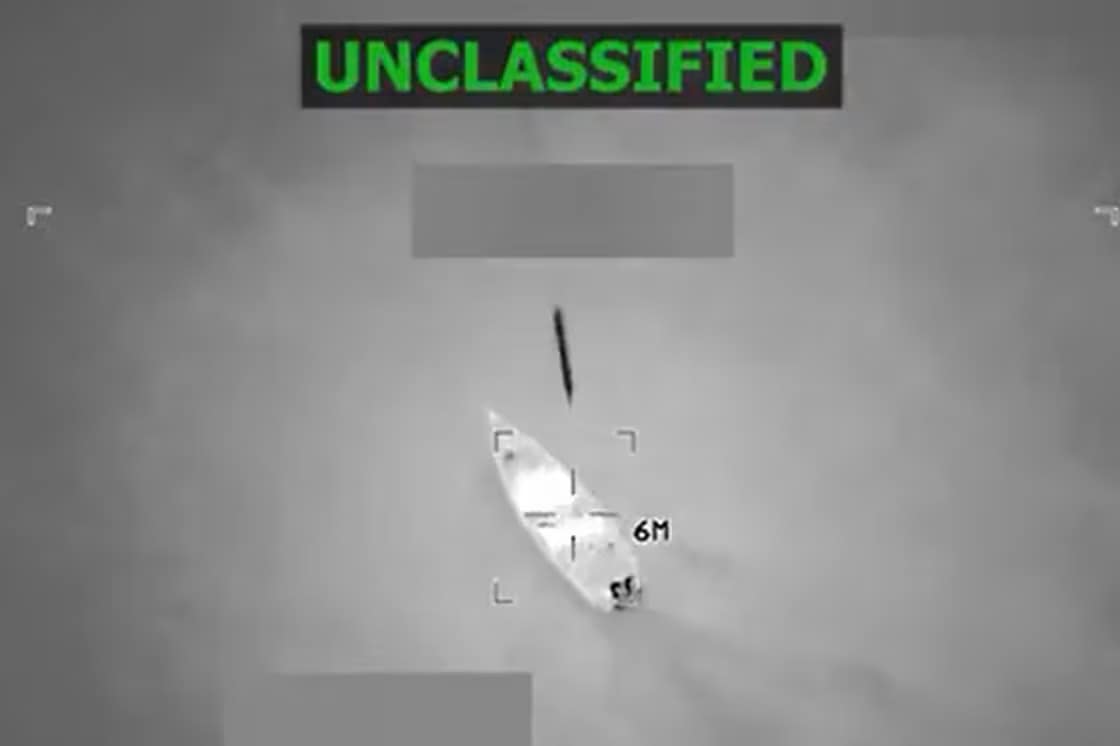The U.S. military has escalated its campaign against drug trafficking in the Caribbean, conducting its 10th strike on a suspected drug-running vessel, as announced by Defense Secretary Pete Hegseth on Friday. The operation, which resulted in six fatalities, has been linked to the Tren de Aragua gang, a criminal organization originating from a Venezuelan prison. The frequency of these strikes has increased significantly, with three carried out this week alone, compared to one every few weeks when they began in September. Notably, two of this week’s strikes occurred in the eastern Pacific Ocean, marking an expansion of the military’s operational zone. Hegseth emphasized that the latest strike took place in international waters and was the first conducted at night, signaling a more aggressive approach. He warned drug traffickers, stating, ‘If you are a narco-terrorist smuggling drugs in our hemisphere, we will treat you like we treat Al-Qaeda.’ The strikes coincide with a substantial U.S. military buildup in the Caribbean and off the coast of Venezuela, including a recent flight of supersonic heavy bombers near Venezuela. This has fueled speculation about potential U.S. intentions to oust Venezuelan President Nicolás Maduro, who faces narcoterrorism charges in the U.S. Venezuelan Defense Minister Vladimir Padrino has dismissed the drug-trafficking allegations as pretextual, accusing the U.S. of seeking regime change. Hegseth’s rhetoric has drawn parallels between the current crackdown on drug traffickers and the U.S. war on terrorism post-9/11. However, President Trump has denied plans to seek a formal declaration of war against cartels, instead vowing to eliminate drug smugglers. The military actions have sparked bipartisan concerns in Congress, with critics arguing they lack proper authorization and violate international law.
